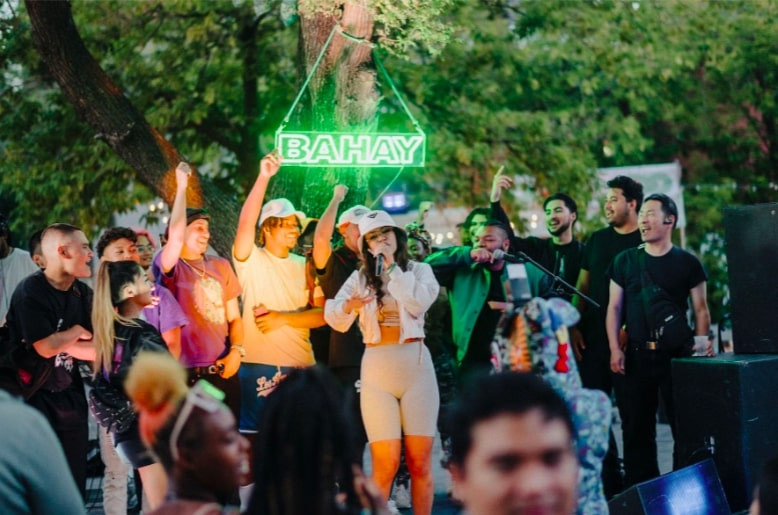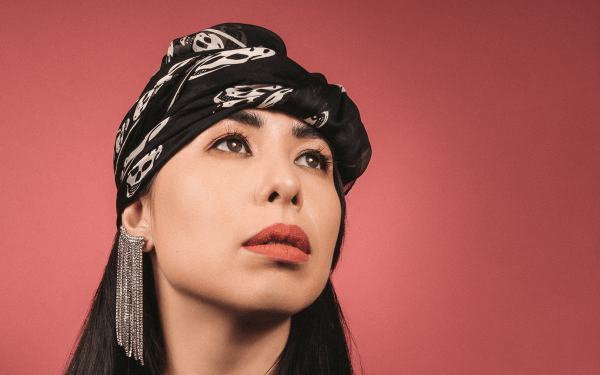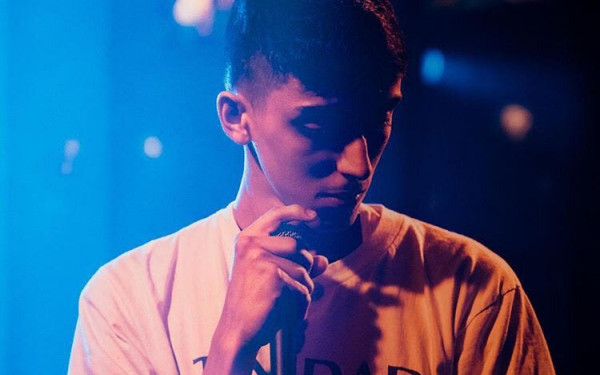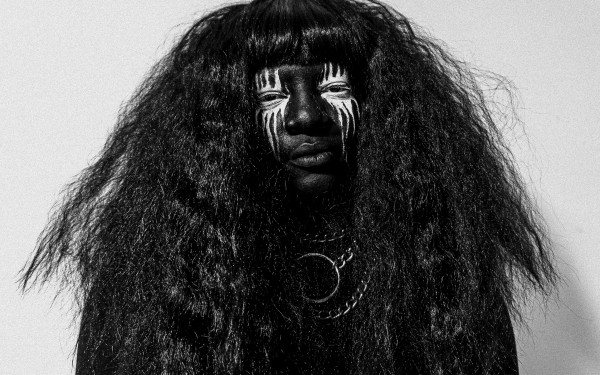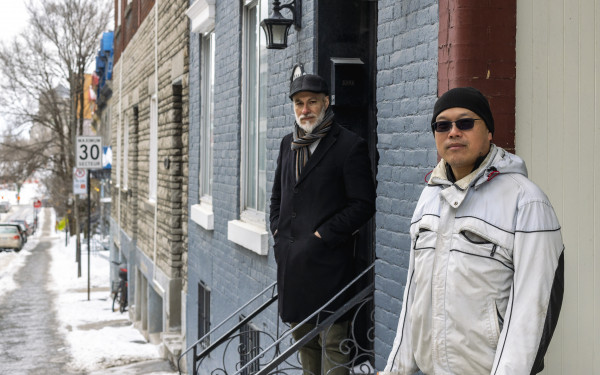Bahay Market: a Serendipitous September Outdoor Moment for BIPOC Communities
Performers, Vendors, Community Organizations Show solidarity at Marché Asiatique
On Sunday Sept. 25., a concert series organized by the Bahay Collective was held in Marché Asiatique. The market featured BIPOC food vendors, fashion and cultural organizations as well as musicians presenting local art and launching products.
Bahay is a Montreal based music collective that emphasizes a sense of family; it is all at once a recording studio, a creative agency and a nest where belonging is harnessed. Founders Chuong Trinh (Lil Water Boy) and Concordia student Mandy Tran, also known as Mando, have created Bahay with the aim to generate a safe space for BIPOC artists to express themselves. They said that the goal of their project is to make certain diasporas feel like they are back home, therefore creating more harmony between each other.
This time, under mist and rain, the occasion marked the first time Bahay had a natural outdoor and free concert, an event representative of their core values.
“We started off as a bunch of university kids fundraising money for the typhoon in the Philippines that happened in late 2019,” said Tran. “The idea was to bring back home the money we would raise with a concert. That is why the first event was called Bahay. We ought to bring the money back home and from there, we thought of turning this event into something more.”
Narrating the history of the collective, Tran highlighted that Bahay is a word that means home in Tagalog, an Austronesian national dialect of the Philippines.
She explained that one goal of the collective is to uplift emerging artists through material and creative support. “If they record with us, we wanna help them in the studio. We help new musicians define a beat, a sound, a voice, a lyric…a story through words. We also help them promote their music and get booked for events,” she added.
The market included other collectives who shared similar goals of interculturality. Present alongside this network was Centre Kapwa, a non-profit decolonization organization who have collaborated with the Bahay Collective. Centre Kapwa’s aim is to highlight and enhance the Filipino community in Canada.
“Our job is to ground, to learn and to teach our community about before we were colonized”, said Desiree Ruiz, co-founder of Centre Kapwa.
Ruiz explained that her center is curating programming as she discussed the history of colonialism of the Philippines, notably by Spain and Japan. At Centre Kapwa, community members deliver various workshops, courses, and services with a decolonization focus. These include creatives, thinkers, and healers operating in a variety of academic and practical fields.
Also present were McGill students Myriam Ferreira and Daniel Cho, co founders of the fashion brand Incognito.
“Incognito means unknown, so what we always look forward to do as a brand is to work with people who are unknown in the city,” said Ferreira. “We want to work with models, photographers, videographers… All the talent that’s in Montreal and uplift it so that they have a bigger platform and more people have access to it.”
Ferreira explained that when Incognito had reached out to the Bahay Collective, they'd been warmly received. Back in summer, Bahay hosted a houseparty event and welcomed new artists into thei base of operations. “The first time that we met Bahay, they allowed us into their home,” said Ferreira.
Ferreira added that even though Incognito and the Bahay collective partake in different domains (fashion and music), their interests align in the sense that both seek to uplift diversity existing within the Montreal culture.
Yenny Yuka is a third year Concordia student and a multi-disciplinary artist associated with Bahay. He explained that the collective is a space where he can thrive without competition, and challenge negative Asian stereotypes.
“Our aim is to showcase another branch of hip hop,” said Yuka. “We’re not trying to tackle the fact or bring up the stereotypes of what it means to be Asian, that is meek, shy, not creative and very straight-forward. We can be artistic too, we can be cool and it is nice to show that to the world, because we already know it ourselves.”

